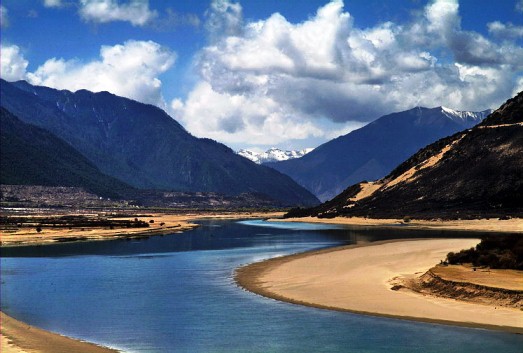China: Media calls for mechanism with India to share Brahmaputra waters, Beijing downplays
 BEIJING: Refuting reports of China joining water wars between India and Pakistan by blocking a tributary of Brahmaputra river, Chinese official media on Monday said that Beijing is ready for a joint multilateral cooperation mechanism with India and Bangladesh to share the waters.
BEIJING: Refuting reports of China joining water wars between India and Pakistan by blocking a tributary of Brahmaputra river, Chinese official media on Monday said that Beijing is ready for a joint multilateral cooperation mechanism with India and Bangladesh to share the waters.
Relations between China and India should not be affected by “imaginary water war”, an article in the state-run Global Times said, adding that Beijing is unlikely to use Brahmaputra river water as a potential weapon.
However, downplaying the official media reports mooting a mechanism to share Brahmaputra river waters with India, China today said Beijing and New Delhi have “effective” cooperation to share data of the river flow and it is willing to continue it.
“China and India have appropriate cooperation mechanism on trans border rivers,” Chinese Foreign Ministry spokesman Geng Shuang told PTI here.”The mechanism has been functioning smoothly at present and has been effective.
The Chinese side is willing to continue its cooperation with the Indian side on this,” he said in a written response to a question about an article in state-run Global Times that stated China is ready to join a multilateral cooperation mechanism involving India and Bangladesh to share the waters.
The clarification came hours after the Global Times article said China is willing to have multilateral cooperation with India and Bangladesh to share the waters. The proposal is significant as China has no water treaty with India to share the river waters.
“It is easy to understand the anger of Indian people as they read recent news reports saying China had blocked a tributary of the Brahmaputra river, which is a trans-boundary river flowing from Southwest China’s Tibet Autonomous Region into the northeastern Indian state of Assam and later into Bangladesh, serving as an important water source for the regions,” it said.
“The move by China to temporarily blockade the tributary to construct a dam sparked widespread concerns in India, but people in the downstream country may be ignoring one thing,” it said, adding that the reservoir capacity of the dam on the Xiabuqu river, a tributary of the Brahmaputra, is less than 0.02 percent of the average annual runoff of the Brahmaputra.
“Frankly, there is no need for India to overreact to such projects, which aim to help with reasonable development and utilisation of water resources,” it said.
However, what is worrying is that some local Indian media outlets linked the blockage with India’s recent water dispute with Pakistan, trying to create the false impression that China may be interested in taking part in the “so-called water war between the two South Asian countries to give Pakistan silent support,” the article stated.
“However, construction of the dam project on the tributary of the Brahmaputra started in June 2014,” it added. “It is clear the blockade to construct the dam does not target India, and relevant countries should not read too much into the move,” the write-up maintained.
While it is understandable that India is sensitive to China’s water exploitation on the Brahmaputra as a downstream country, “China is unlikely to use the waters of the river as a potential weapon,” it said. With PTI inputs

